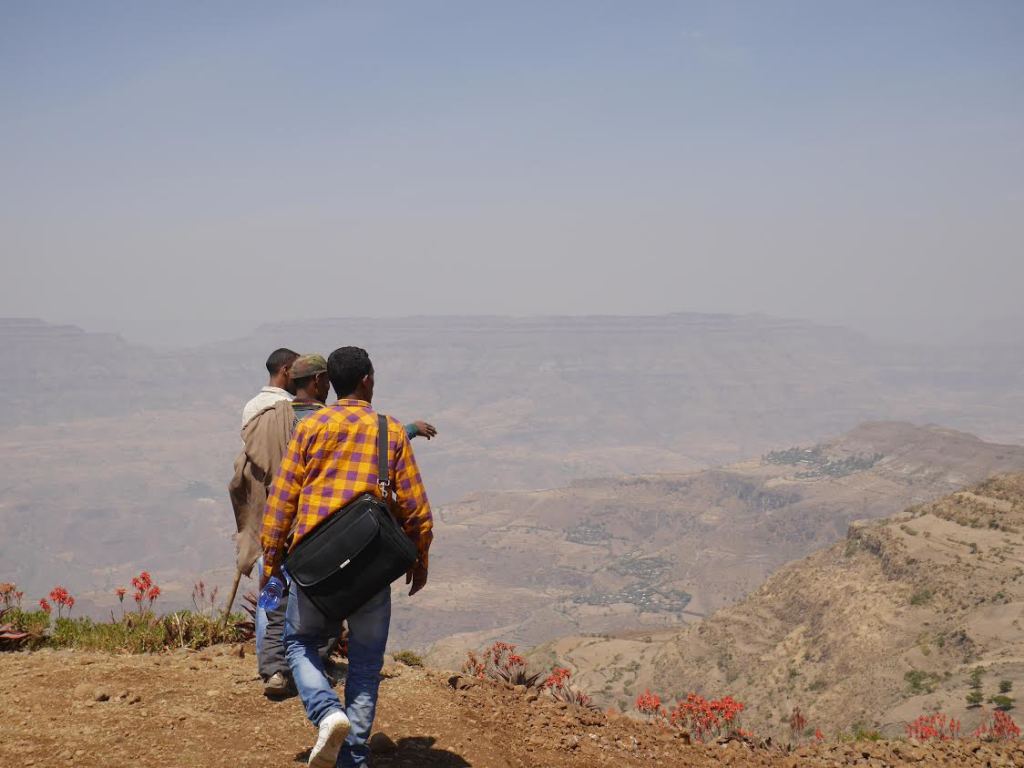Without data, those of us seeking to apply economics to real world development questions are flying blind. As a PhD candidate in applied economics, I knew I wanted to address a large scale research question (more on that in a future post) and that it would not be feasible for me to collect all of my own data. But I also knew that I wanted first-hand knowledge of the datasets I would use in my dissertation. So I patched together a hybrid option between collecting my own data and using existing datasets – piggybacking! Over three months during the spring of 2014, I tagged along with field teams from the Living Standards Measurement Study – Integrated Surveys in Agriculture (LSMS-ISA) project. With funding from the Bill & Melinda Gates Foundation, the LSMS team at the World Bank is working alongside governmental statistical offices in a number of countries in Sub-Saharan Africa to create an innovative series of nationally representative, agriculture-focused, multi-topic, surveys that follow the same households over several panel rounds.

Using National Science Foundation funding through the Food Systems and Poverty Reduction IGERT traineeship, I shadowed survey teams and supervisors in Ethiopia, Tanzania and Uganda. This was an invaluable experience, allowing me to sit in on lots and lots of interviews with randomly selected respondent households in different rural and urban settings. I witnessed all stages of the survey process – enumerator training, questionnaire testing, creating population lists and drawing samples of respondents, interviewing households, validating surveys, filling out village and market questionnaires, etc. I covered a lot of ground (see the pins I dropped at field sites plus a touristic detour or two). The field work was adventure-filled, carrying me wherever respondents were – in some cases very far from roads.

Here are five things I took away from my East Africa road trip:
- Reading a questionnaire carefully is no substitute for watching a lot of interviews in person. Not surprisingly, I learned the questionnaires inside and out, especially the parts that feed into the variables I am creating for my research. I also learned lots of subtleties that do not make it into survey manuals. For example, I discovered why so many wage workers in Ethiopia reported earning zero wages. (Individuals had been reporting their supply of labor to communal projects, which do not pay wages, as casual wage labor).
- I saw my research questions in a whole new light after discussing them in the field. Visiting discussants’ homes and farms certainly added rich context. I was also able to ask occasional follow up questions that data users often want to ask but cannot — why? how? really?!?! I asked an Ethiopian woman why her eldest daughter went to Saudi Arabia to work as a domestic servant. I asked a Tanzanian couple why they had pulled their daughter out of school recently. Of course, I must not over-generalize based on the subset of interviews I observed. But color is color, and I was thrilled to have it.
- My list of research questions grew. I saw so many things I wondered about — child labor, temporary or permanent school non-enrollment, and the proliferation of low return, own-account income-earning activities. And was surprised by how often lack of credit was offered as an explanation for the widespread use of hand hoes to prepare land for planting.
- I made friends in statistics offices. I learned a lot from, and greatly enjoyed, spending time with enumerators and their supervisors in the field. I have enormous respect for the fastidiousness, enthusiasm, and compassion that they bring to their efforts. It is also nice to build relationships with contacts in headquarters offices for the inevitable follow up questions that arise.
- I recognized the need for large scale multi-topic, multi-purpose surveys to continue to innovate. The implementation challenges are clear — it is increasingly difficult to get people to fill out such long surveys, especially in urban areas but also in rural areas. Mobile enumerator teams are often under strong pressure to catch respondents within very short windows of time while they are in town. I saw lots of different organizational approaches to adapt to these challenges, each with its own advantages and drawbacks. I also saw promising uses of technology. I am optimistic that these surveys can continue to engage respondents with minimal disruption to their lives, but this will require continued innovation.
My East African road trip was a win-win-win. Not only did I learn lots by participating in LSMS-ISA data collection activities, I also helped to strengthen current and future surveys. And, as a data user, I continue to reap the rewards of having access to these high quality, publicly available datasets. I highly recommend the piggybacking approach for others whose research uses large scale survey datasets.

